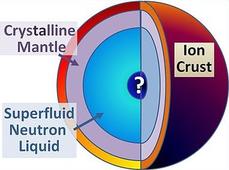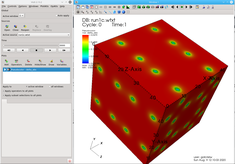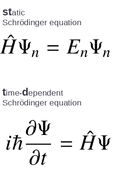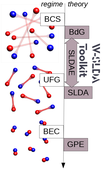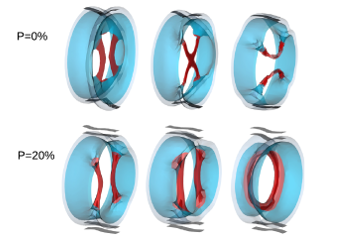W-SLDA Toolkit
Self-consistent solver
of mathematical problems
which have structure
formally equivalent to
Bogoliubov-de Gennes equations.
The W-SLDA Toolkit has been expanded to encompass nuclear systems, now available as the W-BSk Toolkit.
W-SLDA is integrated with the open-source VisIt tool. It allows for:
- visualizing 3D, 2D and 1D results,
- data processing,
- creating animations for time-dependent simulations.
W-SLDA Toolkit provides a unified framework for solving:
- static problems (st-wslda solvers)
- time-dependent problems (td-wslda solvers)
W-SLDA is designed to exploit capabilities of leadership-class supercomputers.
Depending on the type of the code the toolkit can be executed on:
- static codes: standard CPU machines, GPU accelerated machines,
- time-dependent codes: only GPU accelerated machines.
To learn more about a computer that you need for calculations see Requirements
W-SLDA allows to solve problems
- in 3D without any symmetry restrictions: Ψ=φ(x,y,z)
- in 2D with translational invariance along z direction: Ψ=φ(x,y)exp(ikzz)
- in 1D with translational invariance along y and z directions:: Ψ=φ(x)exp(ikyy)exp(ikzz)
W-SLDA allows investigating properties of fermionic in the whole spectrum of interaction strengths:
- Weakly interacting regime (BCS regime) by means of Bogoliubov-de Gennes equations (BdG).
- The strongly interacting regime, (UFG limit), by means of Superfluid Local Density Approximation (SLDA).
- An arbitrary value of askF from BCS to UFG, by means of Extended Superfluid Local Density Approximation (SLDAE)
The latest version W-SLDA Toolkit is 2025.03.19.
The latest version W-BSk Toolkit is 2024.03.01.

